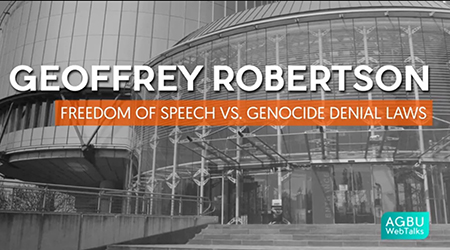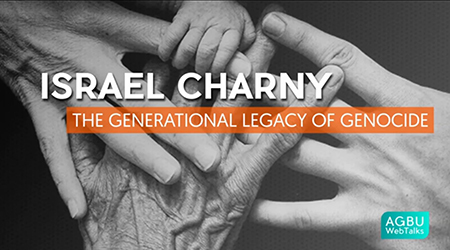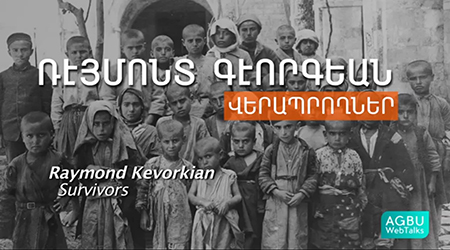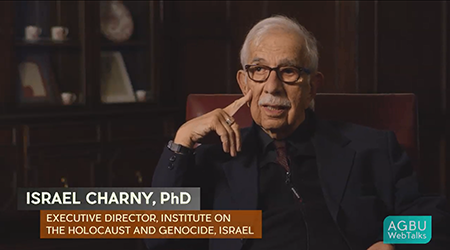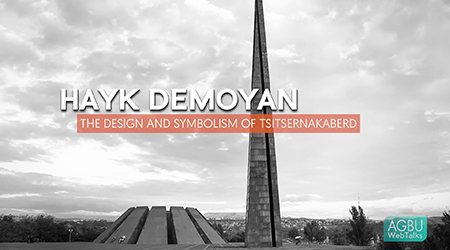WebTalks
Defining an Undeniable Genocide
Hannibal Travis

Defining an Undeniable Genocide
Legal scholar Hannibal Travis discusses the significance of the Armenian Genocide in shaping international law in the 20th century. In his 1948 draft of the UN Genocide Convention, Raphael Lemkin was the first to give a legal definition to the term “genocide,” citing the Armenian case as an example of the destruction of an entire nation. Travis explains that contrary to the false claims made by the Turkish government for the better part of the last century, the Armenian Genocide is an undeniable historical fact, supported by trials, testimony, and documentary evidence, including the Turkish government’s statements in the 1920 Treaty of Sevres accusing the Young Turk regime of widespread massacres and calling for restitution.
Produced by AGBU WebTalks in partnership with the Zoryan Institute.

In January 2015, attorneys Geoffrey Robertson and Amal Alamuddin Clooney represented Armen ... [more]
Armin T. Wegner’s letters and photographs from the Ottoman Empire during World War I ... [more]
Left to ruin after the Armenian Genocide, St. Giragos, once one of the largest Armenian ch ... [more]
Dr. Israel Charny, psychologist and executive director of the Institute on the Holocaust a ... [more]
Historian Raymond Kévorkian reveals figures and demographic details about the survi ... [more]
Dr. Israel W. Charny tells the story of how he became a “devoted student of the deni ... [more]
Legal scholar Hannibal Travis examines the lack of accountability for genocide throughout ... [more]
The Tsitsernakaberd memorial complex in Yerevan is Armenia’s official memorial dedic ... [more]
Aurora Mardiganian, a witness and survivor of the Armenian Genocide, has become a figure o ... [more]

